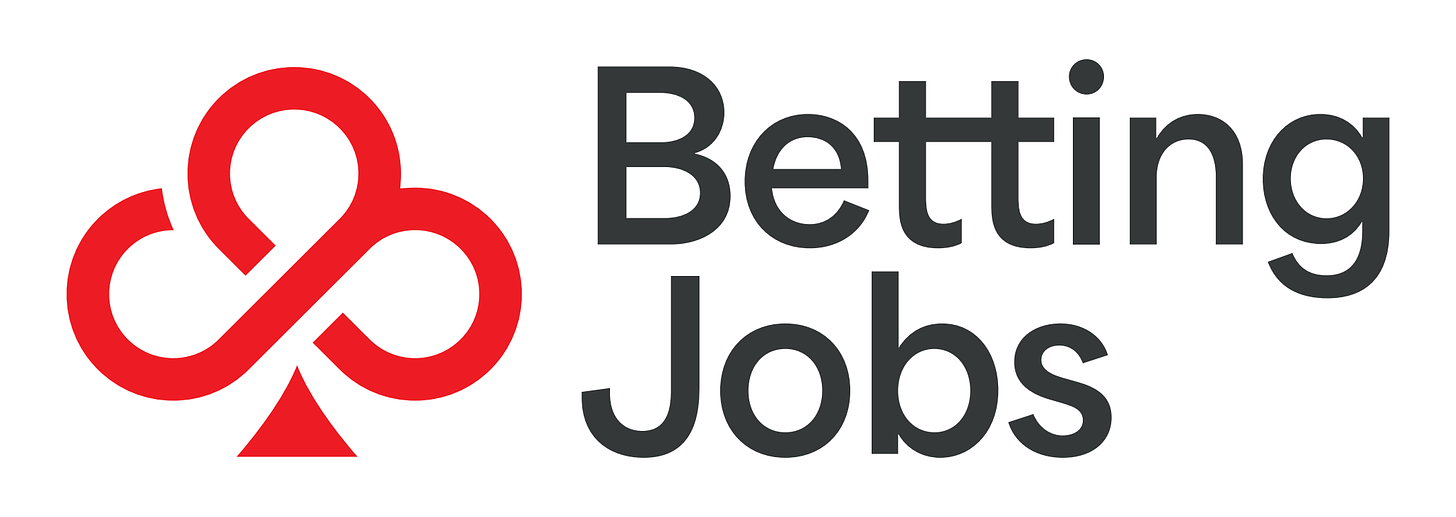Eat y’self fitter: iCasino ‘doesn’t cannibalize’, says new report
Maryland iCasino, Brazil tax warning, Netherlands ads, the Token Word +More
Report from EKG gives Maryland lawmakers iCasino food for thought.
In +More: Kansas fantasy move, Alabama lower house vote due today.
Lottery body issues Brazilian tax warning.
Lawmakers in the Netherlands reject proposals for a total gambling ad ban.
The Token Word: The UK’s FCA cracks down on crypto ‘finfluencers’.
I’m on the menu, you won’t get indigestion.
The cannibalization question
Double bubble: A new report from the analysts at EKG, commissioned by industry association iDEA, concludes that iCasino not only adds a revenue stream but it also helps boost B&M casino revenue.
The report is timed to coincide with meetings within the next fortnight in the Maryland legislature to discuss two iCasino bills.
It reveals an average quarterly revenue boost of 2.44% from the introduction of iCasino across the six US states that have regulated the activity to date.
Do the math: Interestingly, the EKG team also used advanced mathematical modeling techniques to study the potential impact of the introduction of iCasino in casino gaming states that have yet to legalize online.
They concluded the typical state would boost casino revenue by 1.7% annually after introducing iCasino.
Date with destiny: The Maryland House will convene to hear about HB 1319 on February 23, while Senators will meet on February 28 to discuss SB 0603.
Casino flaw: You might recall a research note from Deutsche Bank on this topic in 2021, and a paper from The Innovation Group called ‘iGaming in Maryland’, which was prepared for the Maryland Lottery.
Both claimed that online gaming cannibalizes land-based casino revenue.
But the EKG report pours cold water on them, suggesting they contained “flawed methodologies” including the use of arbitrary dates, which did not give an accurate comparison of the pre- and post-iCasino picture.
The report also points to what they said were other issues with the previous studies, such as double-counting population growth, ignoring the effects of Covid-19 on certain jurisdictions and including children as part of the potential population of gamblers.
Fruit basket: The result, the report concludes, was “an apple-to-oranges comparison of a group of states already in secular decline (prompting early iCasino expansion) versus a group of states that were growing into the pandemic closures.”
Micro-geofencing
Campus perimeter: A bill seeking to ban betting on college campuses in the state of Maryland proposes colleges would have to establish a geofence around their campus to enforce the prohibition. The bill proposes that the geofences be set up by August of this year.
Let’s geofence Uber Eats: The move wasn’t exactly welcomed by industry figures.
BettingJobs is the global leading recruitment solution provider for the iGaming, Sports Betting, and Lottery sectors. Backed by a 20-year track record of successfully supporting the iGaming industry, it's no surprise BettingJobs is experiencing rapid growth and outstanding results. Does your company plan to expand its teams to cope with strong demand and growth?
Contact BettingJobs today where their dedicated team members will help you find exactly what you are looking for.
+More
North America
We’re not in Kansas anymore: According to LegalSportsReport, the regulator in Kansas has ordered six fantasy sports apps, including Underdog Fantasy, to leave the state over “illegal sports wagering.”
The Kansas Racing and Gaming Commission general counsel Judith Taylor told the website that six cease-and-desist letters have been sent since the start of September.
LSR also reported sources as suggesting UF was one of those firms.
Pay the man: Meanwhile, it has emerged that PrizePicks has paid a $15m fine to the New York State Gaming Commission for operating without a license, according to ESPN. The fine follows on from the news of PrizePicks exiting New York earlier this week.
Alabama: The lower house is set to vote on the OSB, casinos and lottery expansion bill later today, Thursday. Passage is expected but the potential legislation is predicted to face a tougher fight in the Senate, as per PlayUSA.
Hawaii: The bill to legalize OSB, HB 2765, has advanced from the House Economic Development Committee. The bill does not specify a tax rate nor does it establish licensing fees, but it does provide for three-year licenses.
The last Walz: Minnesota Gov. Tim Walz said he would sign a sports-betting bill were one to reach his desk in the current legislative session, but with the proviso that it shouldn’t infringe on the state’s tribal compacts.
Two sports-betting bills have been introduced in the upper house by senators Jeremy Miller and Matt Klein. Both allow Minnesota's 11 tribal nations to offer retail and mobile sports betting.
Miller’s bill would allow retail sports betting at horse racing tracks or professional sports stadiums.
The Minnesota Indian Gaming Association issued a statement in support of efforts to authorize sports wagering.
Nebraska: An amended version of the bill to regulate so-called skill games has advanced from the General Affairs Committee of the unicameral Nebraska legislature. The bill would establish a 5% tax rate on revenue. It would also require that hosting businesses generate 60% of their revenue from sources other than skill games.
Global
UAE: On MGM Resorts’ earnings call with analysts on Tuesday, CEO Bill Hornbuckle gave a hint that the first gambling product likely to be licensed in the United Arab Emirates would be an online lottery.
Asked about the prospects in Dubai and Abu Dhabi, Hornbuckle said “it may start with digital first, a lottery, potentially digital.”
He added that MGM remained hopeful of wider gaming licenses being offered.
“If and when both Abu Dhabi itself as the general license granter for all or any of the Emirates goes, and then, ultimately, one by one, the Emirates say they would like it, we hope to be positioned either for Dubai or Abu Dhabi,” he told analysts
Yolo Group’s Sportsbet.io is the latest brand to announce it will feed into the International Betting Integrity Association (IBIA) monitoring system. Yolo said the move comes ahead of the opening of the Brazilian market, which makes cooperating with the integrity monitoring body a condition of its license.
POGO dancing: The Philippines House games and amusements committee has advanced legislation to ban offshore gaming operations, referred to as POGOs, from operating in the country, according to The Philippine Star.
HB 5082 proposes the disbanding of all POGO operations in the country, while HR 1197 calls on the government to ban POGO operations.
Last summer regulator PAGCOR established a new regime for POGOs, which required them to reapply for licenses and included more extensive suitability checks.
Careers+More
Fanatics Betting & Gaming has bolstered its legal team, adding new vice-president of legal product and marketing Eva Pulliam, who joins from law firm ArentFox Schiff, and Briana Reid, a former lawyer for the NCAA, who takes up a regulatory role reporting to senior regulatory counsel Michael Levine.
Brazil tax warning
The big push: The National Association of Games and Lotteries (ANJL) has warned the tax on sports-betting and online games prizes could push players to illegal websites. ANJL’s president, Wesley Cardia, explained that his institution is not against the tax rate being 15%, but rather against the way in which it should be collected and calculated.
In the association’s opinion, complicating the calculation or making payment difficult would undermine legal activity and the income of casinos and the state through lower revenue that would go to the illegal sector.
The issue will have to be addressed by the National Congress once the recess ends, when the government’s vetoes on Law 14,790, which regulates gambling in Brazil (approved at the end of last year) will also be voted on.
The deadline for Congress to evaluate these observations is March 3.
New broom: Two weeks ago, the Ministry of Finance created the Secretariat of Prizes and Bets, which will be responsible for regulating and inspecting sports betting and online games.
The secretariat will also authorize the distribution of prizes and gifts, supervise lottery exploitation, carry out actions against money laundering, market surveillance and prevention of compulsive gambling.
Colombian tax rate
Taxing times: The upper house in Colombia has confirmed it will debate the potential to raise the tax rates applicable to gambling tomorrow, Friday. The current tax framework includes a 15% GGR tax for operators who maintain an RTP of 83% of total stakes. A 17% GGR rate is charged on operators who register an RTP above 83%.
For more on regulatory and business developments in Brazil, Colombia and the rest of the Latin America region, subscribe to LosIngresos+Mas.
Across regulated states, operators can use Compliable’s platform to ensure a smoother licensing journey.
Simplified license applications – ability to apply across multiple states
Help along the way – FAQs portfolio and 1-to-1 support available
Unique Compliance Dashboard – manage licenses and track applications
Read more about the onboarding process here
The Token Word
Sending out a warning: The UK’s financial services regulator issued 450 illegal crypto-asset alerts in the first three months of its strict new marketing compliance regime going live, new data shows.
Whipcrack: New powers from the government entered force in October 2023 giving the Financial Conduct Authority (FCA) the ability to crack down on unregulated, unregistered tokens that target UK consumers.
In just 12 weeks, the regulator had sent 450 warnings advising consumers to steer clear of businesses that have not registered under the new rules, which wrap crypto assets into the sphere of existing financial laws regarding marketing and promotion of products.
It found some operators were using small fonts or poor positioning to conceal risk warnings, and making claims about the safety and security of assets without highlighting the dangers involved.
The FCA said it is closely monitoring “the rise of influencers promoting financial products”, including credit and investments on social media, which often targets younger age groups.
The regulator added that it has conducted internal reviews on 44 cryptocurrency firms over money laundering concerns.
Four horsemen: In the last year, the FCA has only approved four firms wishing to sell crypto assets to UK investors: brokerage house Interactive Brokers; crypto exchange Bitstamp; PayPal; and Nomura-funded crypto custodian Komainu.
It said the low number is down to the poor quality of applications and that it has also observed regulated firms with links to crypto businesses failing to carry out proper tests on sources of funds.
“We remain concerned that regulated firms are not doing enough to meet their own obligations when providing support services, such as payment services, to crypto firms that are illegally promoting to UK consumers,” the FCA said.
“We are engaging with these firms to remind them about their regulatory obligations including, but not limited to, carrying out appropriate due diligence on their clients, KYC checks and ensuring that they are not dealing with the proceeds of crime. We expect to have a renewed focus on this area in 2024.”
Dutch ad ban rejection
Two out of three ain’t bad: Lawmakers in the Netherlands have rejected proposals for a total ban on gambling advertising, but agreed to bring in loss limits and fine operators up to 10% of turnover for regulatory violations.
The House of Representatives debated three updates to the online gaming laws that have governed the Dutch market since October 2021. A blanket ban on advertising failed by six votes, however a separate amendment on “overarching player limits”, the introduction of loss limits, was passed.
The House approved the mandate proposed by ChristenUnie party leader Mirjam Bikker, who has been a major critic of the current regulations.
Bikker wants a “universal loss limit” across all 27 licensed operators “without the possibility of offering customers an increase.”
The Netherlands gambling regulator is set to introduce a loss limit of around $150 for anyone aged 24 or under, however ministers feel this may be insufficient and are contemplating compulsory monthly financial risk checks for player accounts that spend over $350.
The final vote was passed in favor of the mandate of Socialist Party MP Michiel van Nispen, who proposed stricter penalties of up to 10% of turnover for online gambling violations.
Calendar
Mar 5-7: SBC Summit Rio
Mar 20: Kindred Sustainable Gambling Conference, London
Mar 27-28: Player Protection Forum, London
ComplianceOne Group, the leader in iGaming Compliance solutions incorporating ComplianceOne, our services division, and ProductsOne, our products division that includes Complitech.
We guide online gambling operators and suppliers gain a competitive edge through technical and regulatory compliance. We cover any areas on the spectrum to ensure you operate a compliant organization.
For more information, click here.
An +More Media publication.
For sponsorship inquiries email scott@andmore.media.











